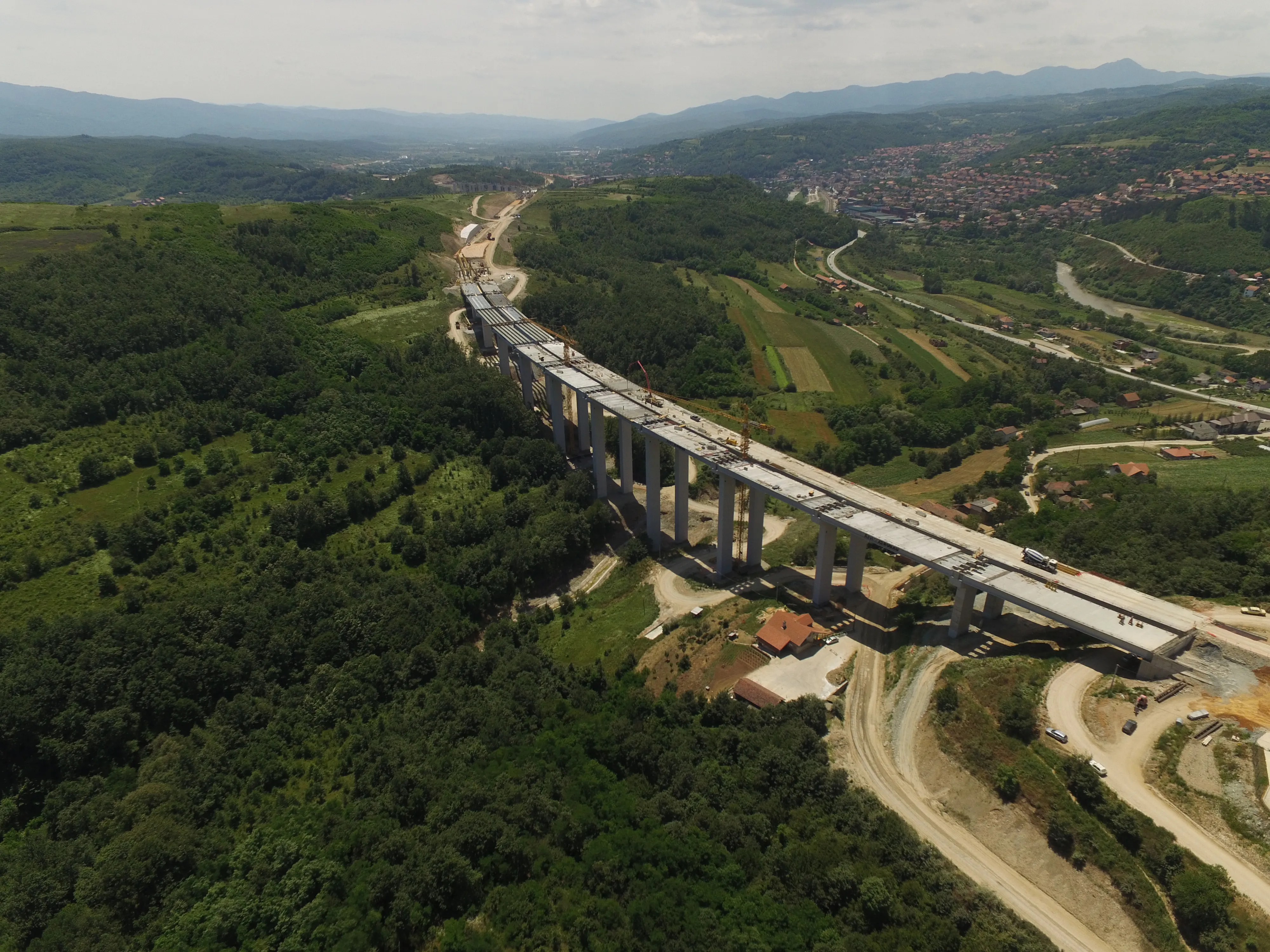The European Bank for Reconstruction and Development (EBRD) is supporting the modernisation of the urban roads system in the Macedonian capital Skopje, with a ?5.6 million loan to introduce a modern traffic management system and upgrade one of the key arteries in the city.
May 1, 2012
Read time: 2 mins
The 1166 European Bank for Reconstruction and Development (EBRD) is supporting the modernisation of the urban roads system in the Macedonian capital Skopje, with a €5.6 million loan to introduce a modern traffic management system and upgrade one of the key arteries in the city. This is the first time a Macedonian municipality has been able to attract financing directly from an international financial institution, without sovereign guarantee.
Rehabilitation of Skopje roads infrastructure is one of the main priorities of the city which generates almost a half of FYR Macedonia’s GDP and is home to 700,000 residents.
With the support of the EBRD funds, a modern IT-based traffic management system will be introduced in Skopje. It involves the installation of new traffic signals and traffic signal controllers that will be linked through a dedicated fibre-optic network to the automated traffic control centre, as well as new traffic surveillance cameras and electronic traffic message signs at key junctions.
The EBRD loan will also finance the reconstruction of one of the principal traffic corridors in Skopje, Prvomajska Street, which connects the centre with the south-eastern part of the city. The project will transform the street into a four lane road, with reconstructed pavements, new footways and cycle tracks, as well as new drainage, lighting and signage.
“This project will improve considerably traffic safety for motorists and pedestrians in the Macedonian capital. It will reduce travel times and ease congestion. We are delighted with our cooperation with the Skopje authorities in the preparation of this important project for the city. It will serve as an excellent example of how direct lending can help municipalities improve local infrastructure and services,” said Lin O’Grady, deputy director for municipal and environmental infrastructure at the EBRD.
The implementation of the project is supported by €880,000 in technical assistance funding provided by the Bank and the government of Austria. The EBRD financing is building on the EU-funded CIVITAS technical assistance programme for urban development 'Renaissance', which initiated the modernisation of Skopje traffic management system.
Rehabilitation of Skopje roads infrastructure is one of the main priorities of the city which generates almost a half of FYR Macedonia’s GDP and is home to 700,000 residents.
With the support of the EBRD funds, a modern IT-based traffic management system will be introduced in Skopje. It involves the installation of new traffic signals and traffic signal controllers that will be linked through a dedicated fibre-optic network to the automated traffic control centre, as well as new traffic surveillance cameras and electronic traffic message signs at key junctions.
The EBRD loan will also finance the reconstruction of one of the principal traffic corridors in Skopje, Prvomajska Street, which connects the centre with the south-eastern part of the city. The project will transform the street into a four lane road, with reconstructed pavements, new footways and cycle tracks, as well as new drainage, lighting and signage.
“This project will improve considerably traffic safety for motorists and pedestrians in the Macedonian capital. It will reduce travel times and ease congestion. We are delighted with our cooperation with the Skopje authorities in the preparation of this important project for the city. It will serve as an excellent example of how direct lending can help municipalities improve local infrastructure and services,” said Lin O’Grady, deputy director for municipal and environmental infrastructure at the EBRD.
The implementation of the project is supported by €880,000 in technical assistance funding provided by the Bank and the government of Austria. The EBRD financing is building on the EU-funded CIVITAS technical assistance programme for urban development 'Renaissance', which initiated the modernisation of Skopje traffic management system.









